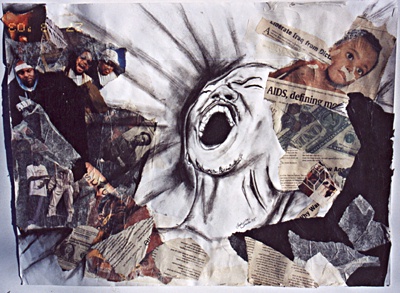All Nonfiction
- Bullying
- Books
- Academic
- Author Interviews
- Celebrity interviews
- College Articles
- College Essays
- Educator of the Year
- Heroes
- Interviews
- Memoir
- Personal Experience
- Sports
- Travel & Culture
All Opinions
- Bullying
- Current Events / Politics
- Discrimination
- Drugs / Alcohol / Smoking
- Entertainment / Celebrities
- Environment
- Love / Relationships
- Movies / Music / TV
- Pop Culture / Trends
- School / College
- Social Issues / Civics
- Spirituality / Religion
- Sports / Hobbies
All Hot Topics
- Bullying
- Community Service
- Environment
- Health
- Letters to the Editor
- Pride & Prejudice
- What Matters
- Back
Summer Guide
- Program Links
- Program Reviews
- Back
College Guide
- College Links
- College Reviews
- College Essays
- College Articles
- Back
Lord of the Flies by William Golding
William Golding, author of the book Lord of the Flies, was born on September 19, 1911. In 1940, he joined the Royal Navy as a lieutenant during the WWII. The experience he gained left him a deep impression, from which many navy officers, cruise ships, and the sea in his novels all derive from. The Lord of the Flies, in particular, is a masterpiece that brought him unprecedented fame and fortune.
The story happens in a nuclear war during a future WWIII, in which a group of children ranging from 6 to 12 years old are trapped on a deserted island due to an air crash when evacuating. At first, they are still able to coexist, but later on, they try to eliminate each other due to the evil nature of human beings, leading to catastrophic results.
An intriguing aspect is the contrast between the fundamental qualities among the main characters. Ralph is a destined leader, who is elected by the other kids. He advocates a democratic and civilized society. He regards unity and order as the top priority, as he strongly requests forming an assembly and speaking with the conch. His faith lies in fire, from which the smoke serves as a signal to be rescued, and in shelters, which protects the kids from adverse weather and dangerous beasts. In contrast, the other chief, Jack is brutal and tyrannical. He is strongly against Ralph’s rules and is violence-oriented. He disregards Ralph’s order to secure fire and shelter and gathers his men to hunt for food instead, causing the fire to go out and losing the chance to be rescued. He holds strong contempt for rules and has a terrible desire for power. Jack forms his own groups of people as a result and kills Piggy and Simon in the end, contributing to a split society. Ultimately, Ralph’s rules are overwhelmingly challenged by Jack, further suggesting that humans’ basic good natures will gradually give way to the bad ones.
Another sharp difference in characters occurs between Piggy and Simon. Piggy focuses on scientific practices to solve disputes and help Ralph. He often proposes useful advice for Ralph, like using a conch to gather an assembly. He is always science-oriented; therefore, he does not believe in sayings about a haunting beast. The fact that his spectacle helps light a fire is another evidence of his application of science. However, because he is fat, wears glasses, and suffers from asthma, he is often discriminated against; his ultimate demise indicates that brutality outweighs science and rationality. Simon, on the other hand, contrasts with Piggy. Though they are both looked down upon, Simon is a true prophet, using instinct to comprehend the world instead of using science. He longs for truth and is the first person on the island to discover that the dangerous beast is the lord of the flies. He even talks to the beast while nobody can demonstrate his uniqueness.. However, the beast is only an allusion to the children’s inner heart of fear; in fact, Simon believes it to be the dead pilot in the air crash.
After reading the novel, I was lured into contemplation of the main theme. The main theme behind the story is about the evilness of human nature, turning what could have been a kids’ paradise into a bloody massacre field. The title Lord of the Flies symbolizes selfishness, avoidance of responsibilities, addiction to violence and power, and ignorance, which are all evil characteristics of humans and are typical sins among humans according to the Bible. Humans, under loose regulation, are likely to show their ferocity and brutality to corrupt society, stepping on democracy and acting like apes without brains for rational thinking, preferring mere violence instead. The story on the deserted island actually alludes to the whole human society, where good and bad qualities coexist. All in all, we should readily admit the pathetic fact that humans are cruel and greedy and learn to address our huge ignorance about fundamental human nature in order to be cautious enough about human’s evilness.

Similar Articles
JOIN THE DISCUSSION
This article has 0 comments.
